Idaho’s public libraries are causing a stir with a new rule that bans kids from entering. This drastic step comes after conservative lawmakers passed a law targeting “obscene” books.
Now, libraries must either isolate these books or face legal actions from parents.
New ID Policy
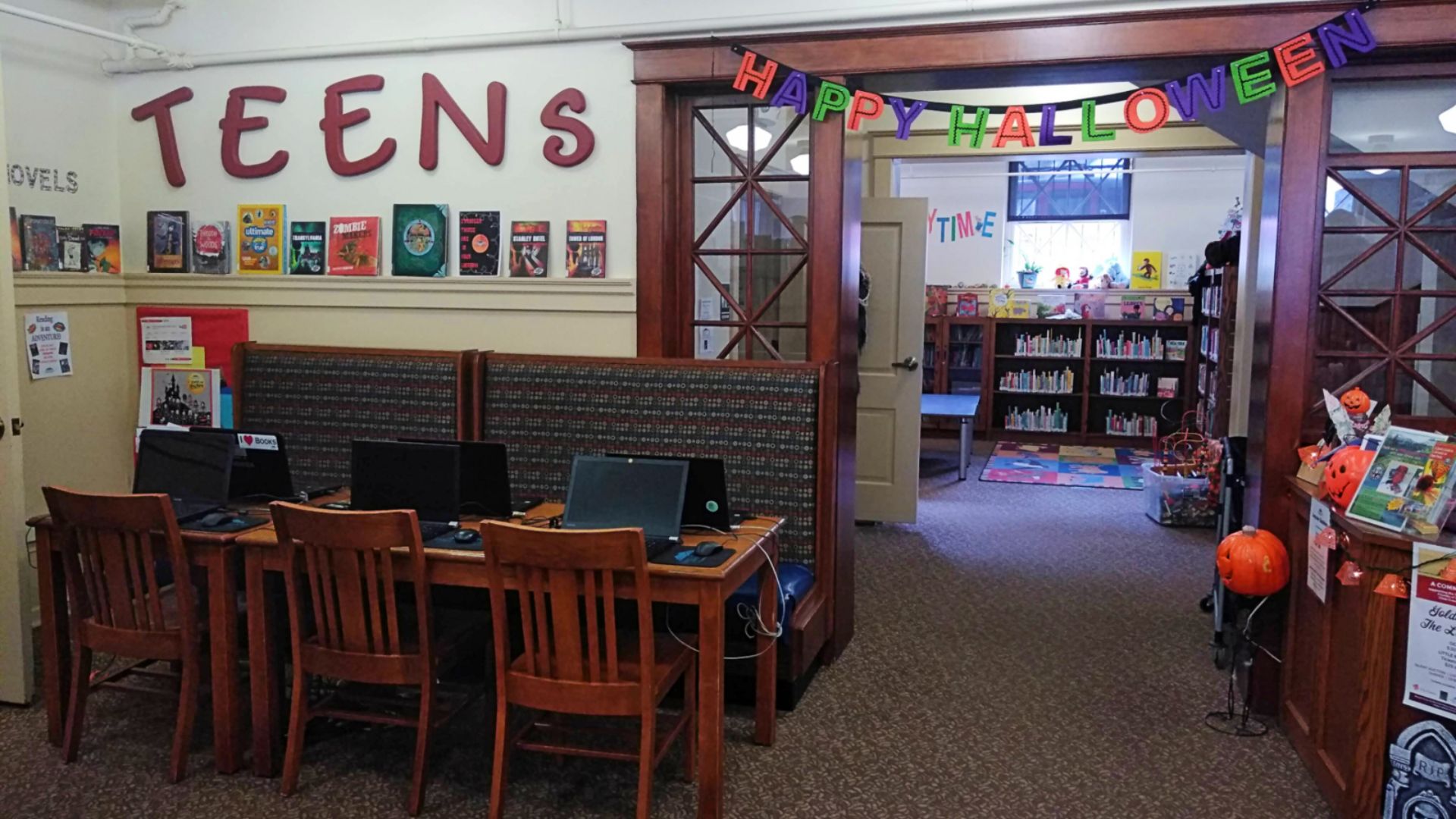
Idaho libraries now require under-30s to show ID, sparking an online backlash.
Comparisons are being drawn to restrictive abortion laws, with pointed remarks about the contradictory treatment of young people in Idaho.
Small Libraries, Big Changes
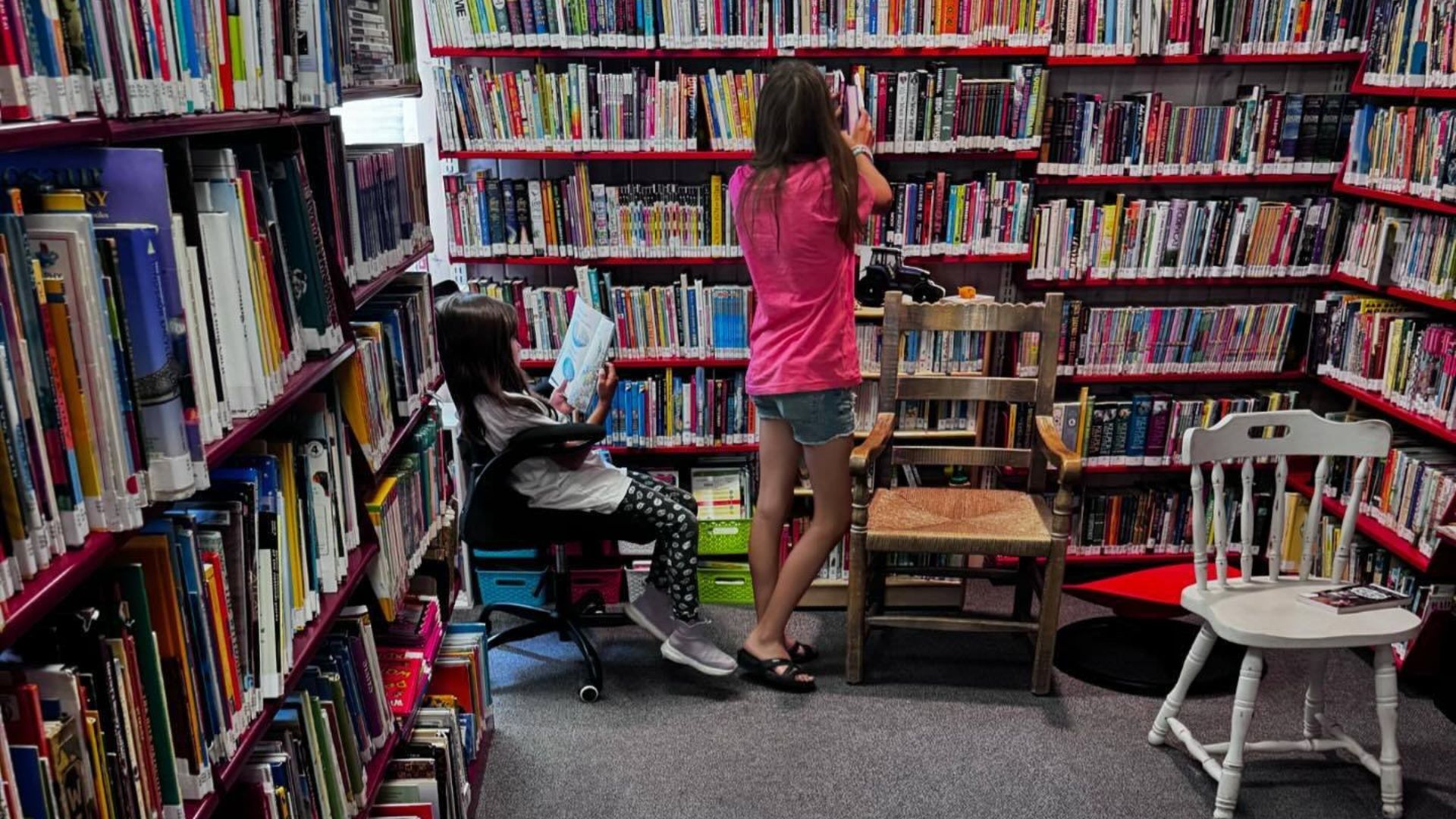
The Donnelly Public Library, due to its small size, has gone completely adults-only.
They’ve even implemented rules where kids can’t use the bathroom without a parental escort, showing how deeply these new laws affect everyday life.
What If A Library Has One Room?

Some libraries are more equipped to adapt to the new bill than others. For small libraries that only take up one room, tough decisions need to be made as to whether libraries will fully remove controversial books or ban children from entering.
Camas County Public Library have restructured their complaints procedures while Filer Public Library use family library cards, so it is up to the parents which items their children can check out.
“No Kids Allowed” Signs Pop Up
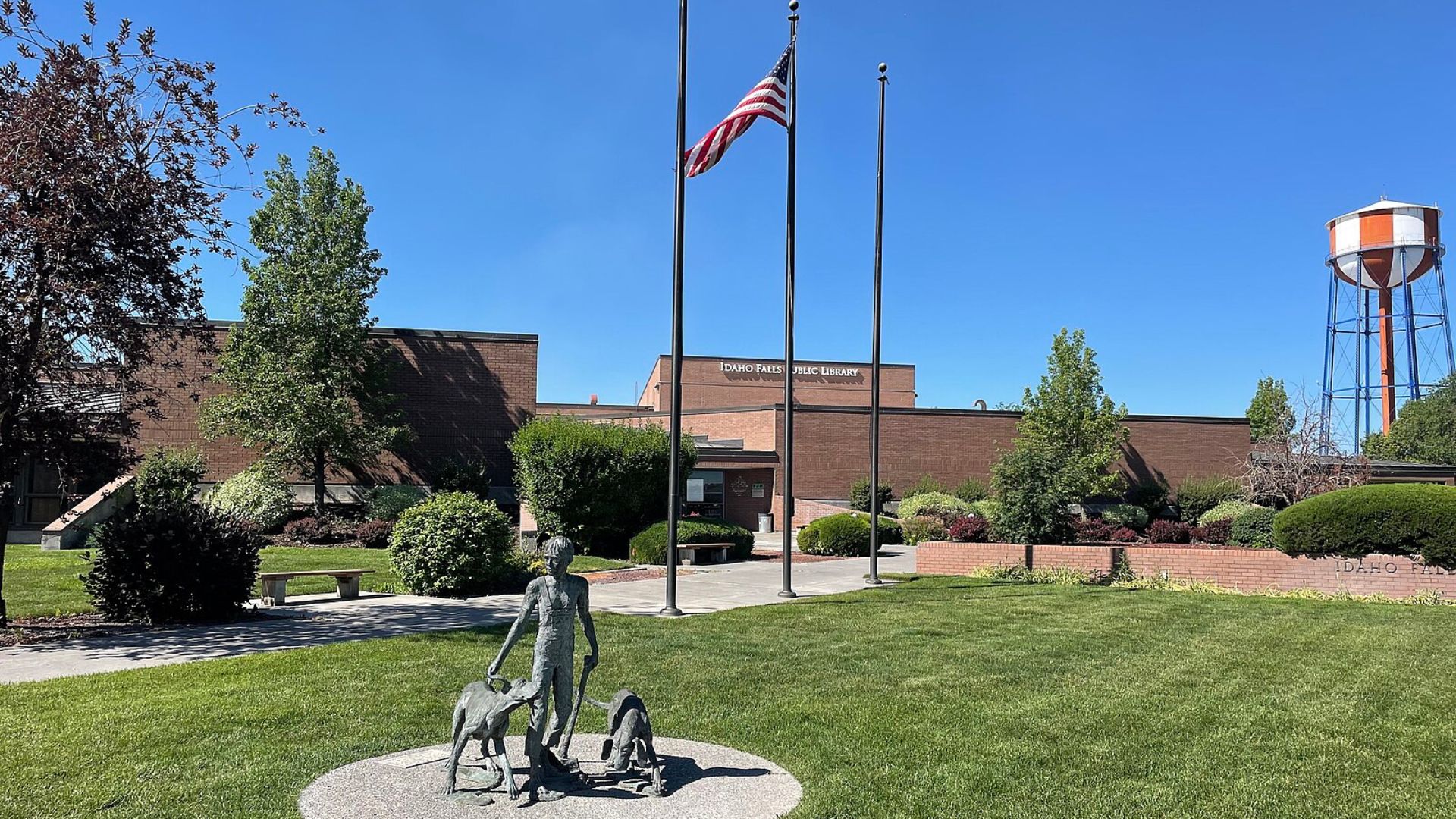
At the Idaho Falls Public Library, a stark stop sign greets young visitors, informing them of the new rules.
These measures include having an unrestricted library card or a parental affidavit for each visit, emphasizing the library’s strict entry policy.
Financial and Legal Risks Too Great

Many libraries, unable to afford legal risks or create adult-only areas, opted to ban kids entirely.
This decision aims to protect the library staff and funds but at a significant cost to community access and educational resources.
Libraries Faced With Fines And Structural Upheaval

Public libraries in Idaho are more vulnerable to the sensitivities of the public.
If a library received a written complaint about a book, the library is forced to relocate a book to an adults-only section within 60 days. The complaint does not have to come from someone living in Idaho. If the library refuses to relocate the materials in question, the complainant could sue in civil court for a fine of at least $250.
Legislative Impact on Library Operations
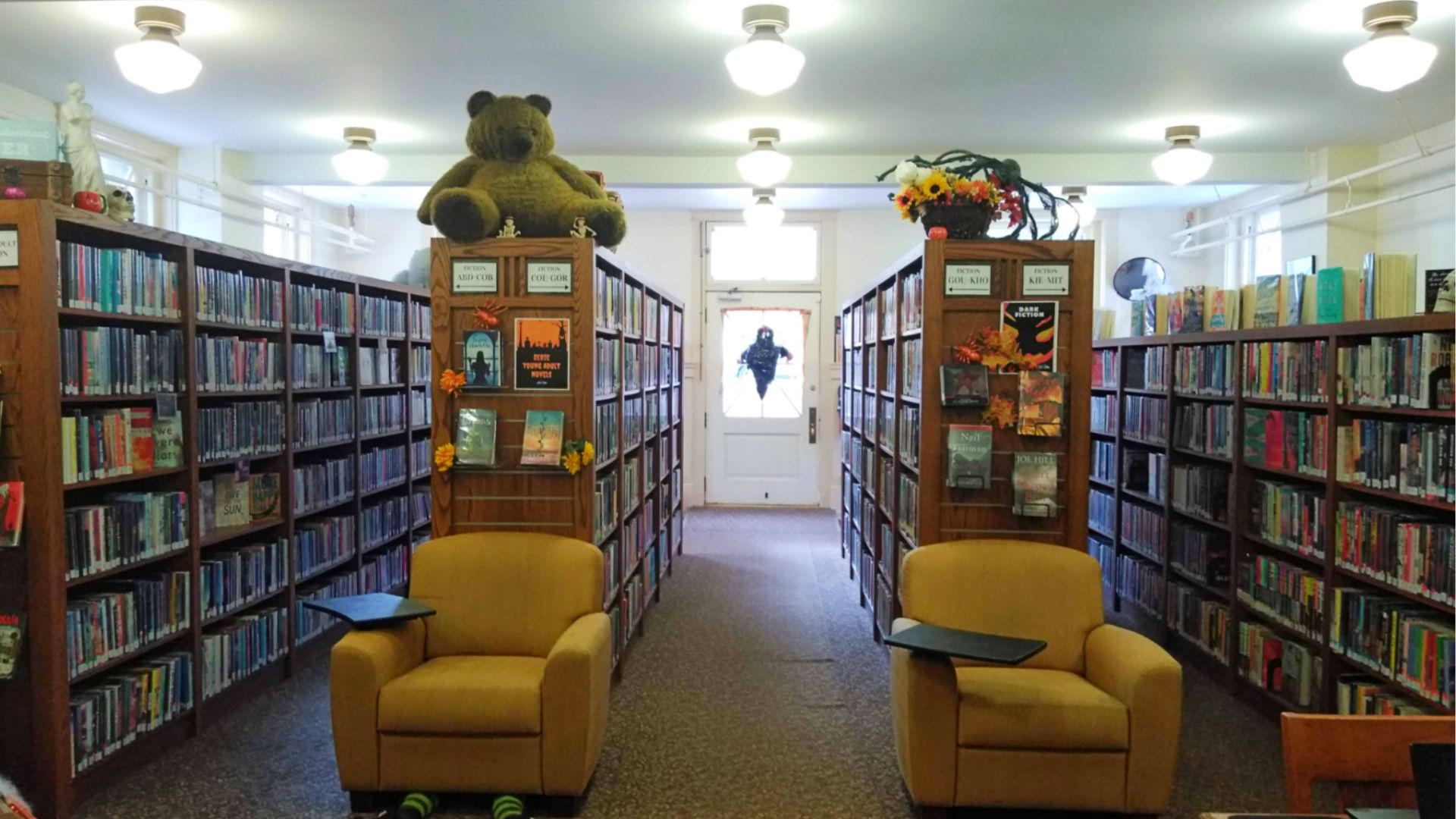
Representative Megan Egbert highlighted the operational challenges, particularly for small, often volunteer-run libraries.
The new law demands vigilant monitoring of book access, a near-impossible task for these smaller institutions.
High Stakes for Non-compliance

The new legislation not only threatens libraries with lawsuits but also puts uncapped damages on the table.
Originally, fines could have reached $2,500 per incident, but even with reductions, the financial risks remain a looming threat.
Governor’s Reluctant Approval

Governor Brad Little was initially against the harsh penalties of the law, which he feared could lead to widespread library closures.
However, after legislative revisions, he signed the bill into law, albeit reluctantly, expressing his frustration openly.
Idaho’s State Governor Was Not Enthusiastic About The Bill

Governor Little eventually signed the bill a year after shutting down a similar bill about children’s access to certain materials.
“I signed that stinkin’ library bill,” Little told Idaho Reports. Little said he wanted to keep “truly inappropriate library materials out of the hands of minors”. He vetoed last year’s bill for making “sweeping, blanket assumptions on materials that could be ‘harmful to minors’ in a local library”. The current bill contains similar language.
A Broad Attack on Free Speech
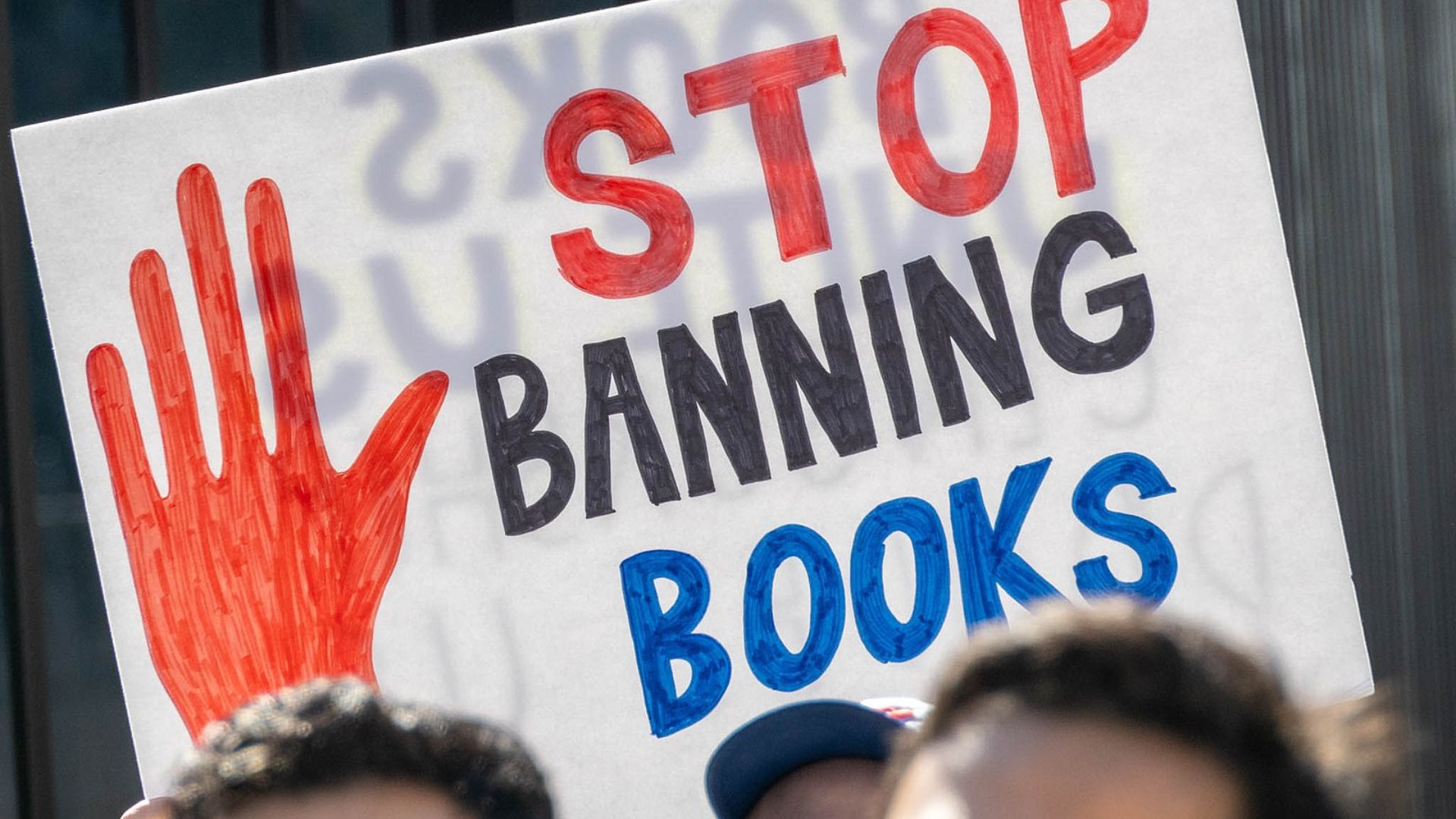
Critics argue that the law’s vague definitions could extend to banning books with benign LGBTQ themes.
This vague criterion has stirred significant opposition, with claims it infringes on free speech and parental rights.
Nationwide Rise in Book Bans
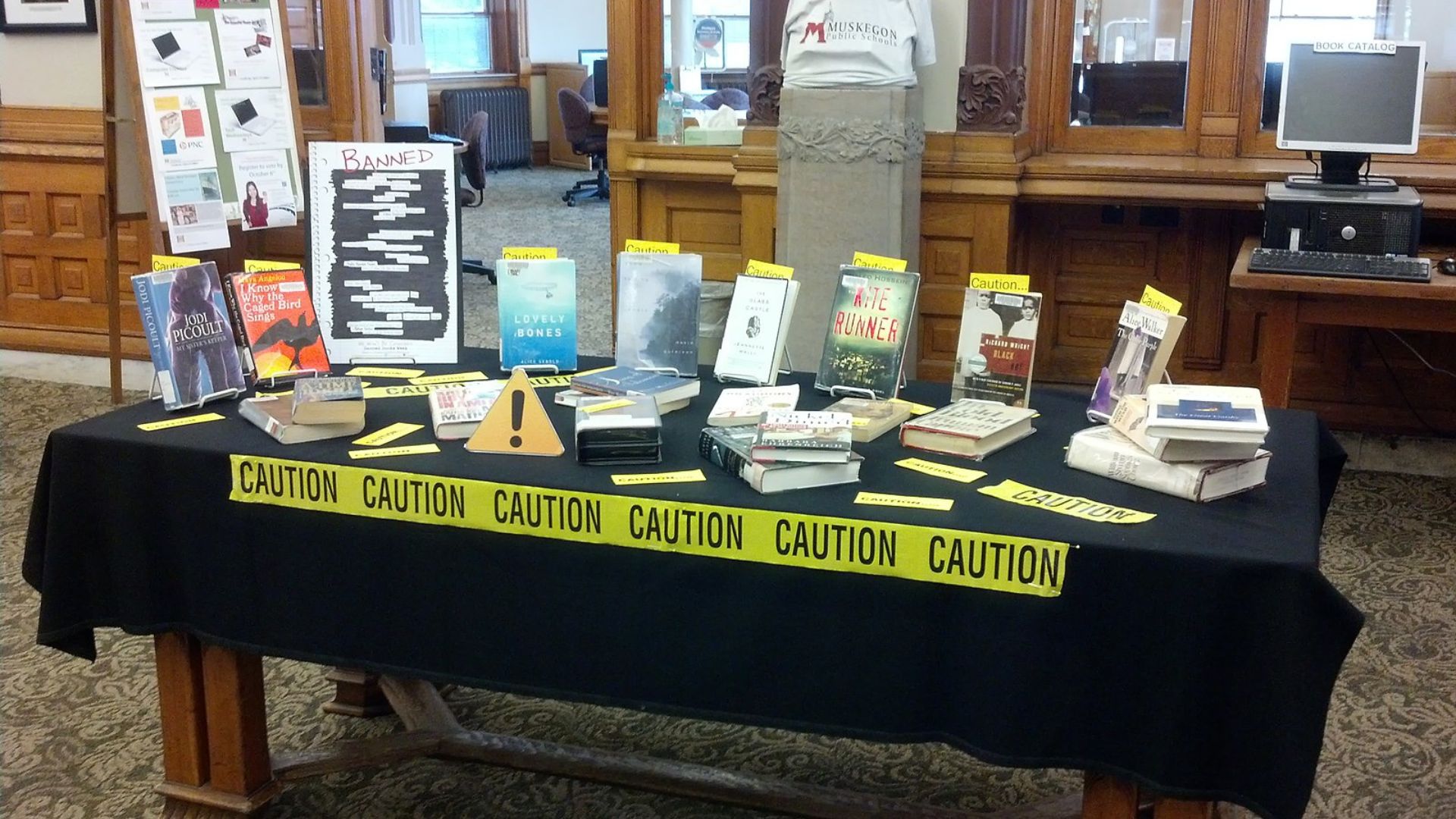
The controversy in Idaho reflects a broader national trend where books discussing gender identity and race face increasing scrutiny.
These books, and by extension the communities they represent, are under attack, sparking a defense of these narratives.
Record-High Book Censorship

2023 saw a record number of books challenged in libraries, the highest in over two decades.
Titles like “Gender Queer” topped the list of disputed books, indicating a significant uptick in censorship efforts within educational resources.
“Obscene” Is Doing A Lot Of Legwork For This Bill
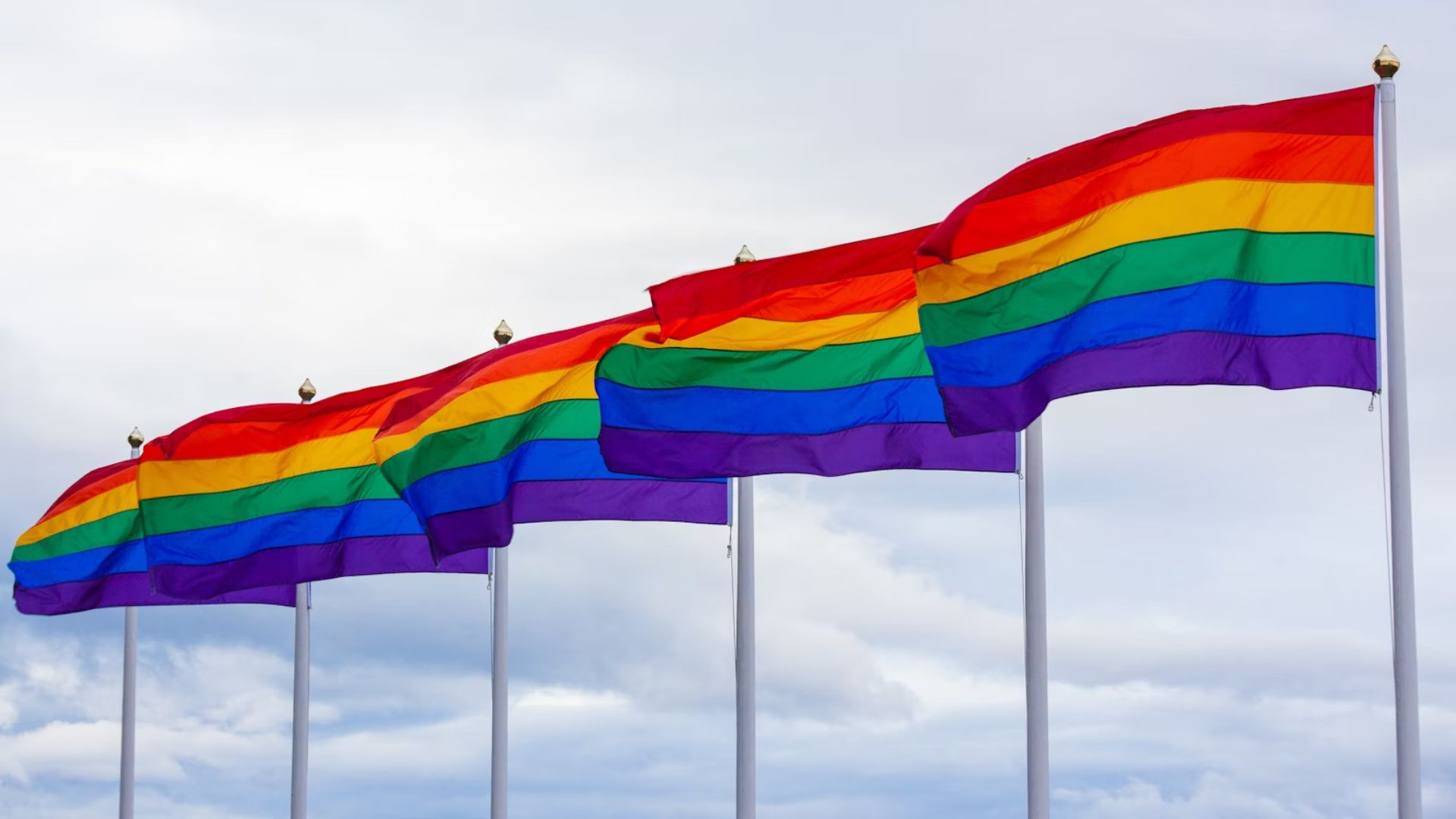
The line between acceptable and unacceptable materials for public libraries is thin. Writer Abigayl Martin’s research on the 710 bill found it does not take much to ban children from accessing a book.
“Say there was a book with a gay main character or trans main character, no sex, no anything else, no language, then that will be reason enough to ban a book, which is kind of terrifying, if you ask me.”
What Are “Obscene” Materials?

It is not completely clear which materials count as “obscene”. Those in favor of the bill generally refer to books with LGBTQ characters or sex education materials.
President of the Idaho Family Policy Center, Blaine Conzatti (who backed the bill), said: “Pornogrpahy has no place in schools or public libraries – period. No child should ever encounter sexually explicit books at taxpayer-funded schools or community libraries.”
Public Protests and Political Reactions

As the law took effect, protests erupted outside libraries across Idaho.
Politicians and public figures voiced their concerns about the damaging effects of such laws on community trusts and the autonomy of libraries, emphasizing the ongoing struggle for intellectual freedom.
Idahoans Did Not Want This Legislation
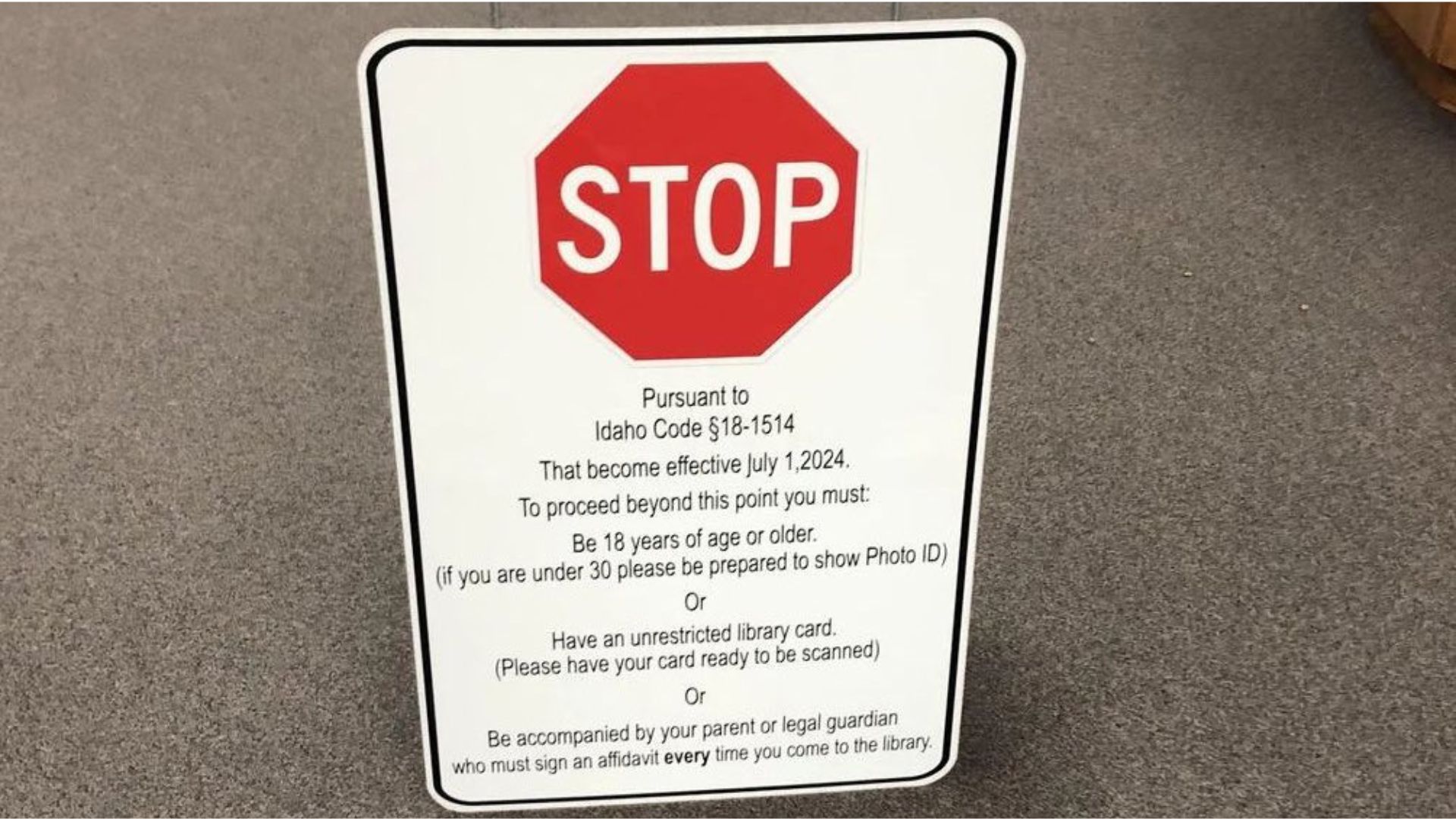
This legislation means it is in the Idaho government’s hands to decide which materials should be available to children in public libraries. However, this is not what Idahoans wanted.
According to an annual study conducted by Boise State University, 69% of the public in Idaho trust public libraries to choose which books should be made available to them. Levels of trust in libraries is this high regardless of party identification.
LGBTQ Idahoans Are Pushing Back
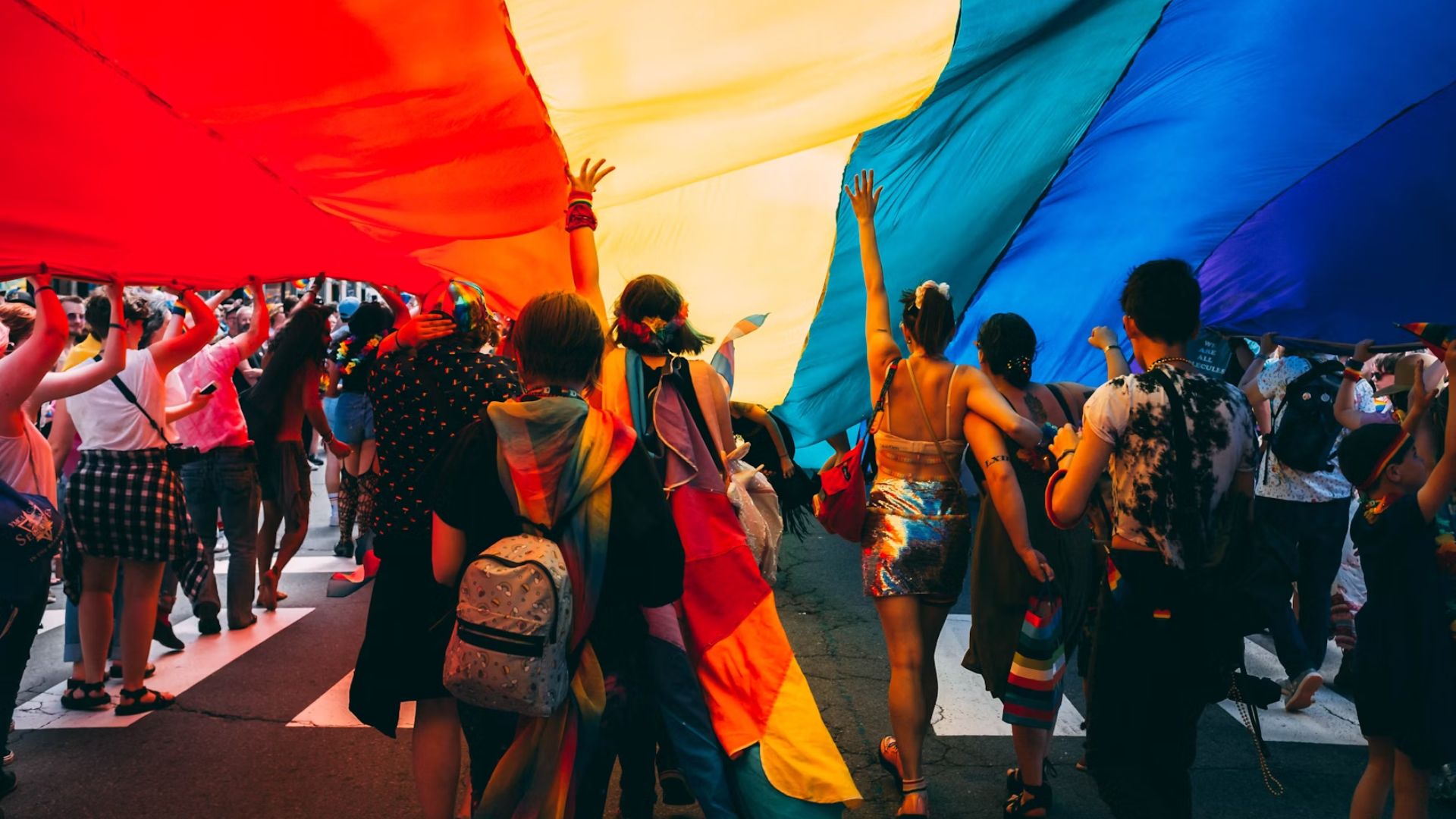
Books that mentioned LGBTQ people or characters are a major target of the book-banning wave across the U.S., but LGBTQ people are coming together in protest.
After a years-long hiatus, the advocacy group, The Queer Caucus, have returned to fight for LGBTQ rights and representation. Chair of the group, Nikson Mathews said: “Why bring it back now? There’s just been a terrible increase in bills that are targeting our community.“
Libraries In Idaho Are Speaking Out
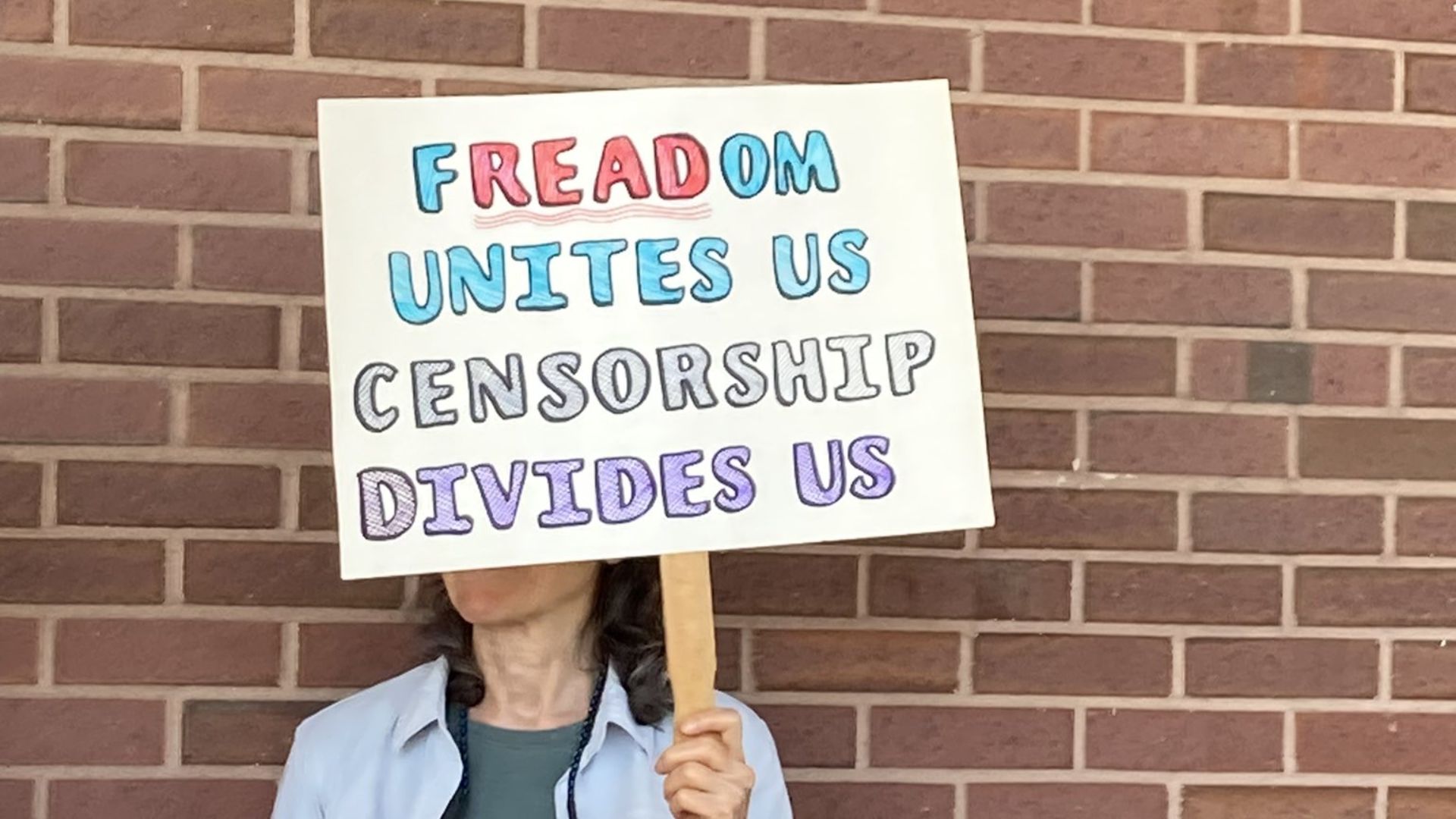
Staff and attendees of libraries in Idaho have not been quiet about their opinions on the new legislation.
The Idaho Library Association posted on X (formerly known as Twitter): “The Governor has signed 710 into law. We are so disappointed in this outcome. We will continue our efforts in supporting all Idaho libraries and their communities moving forward. Please check on your librarians.”
The Public Are Taking This To Capitol Building
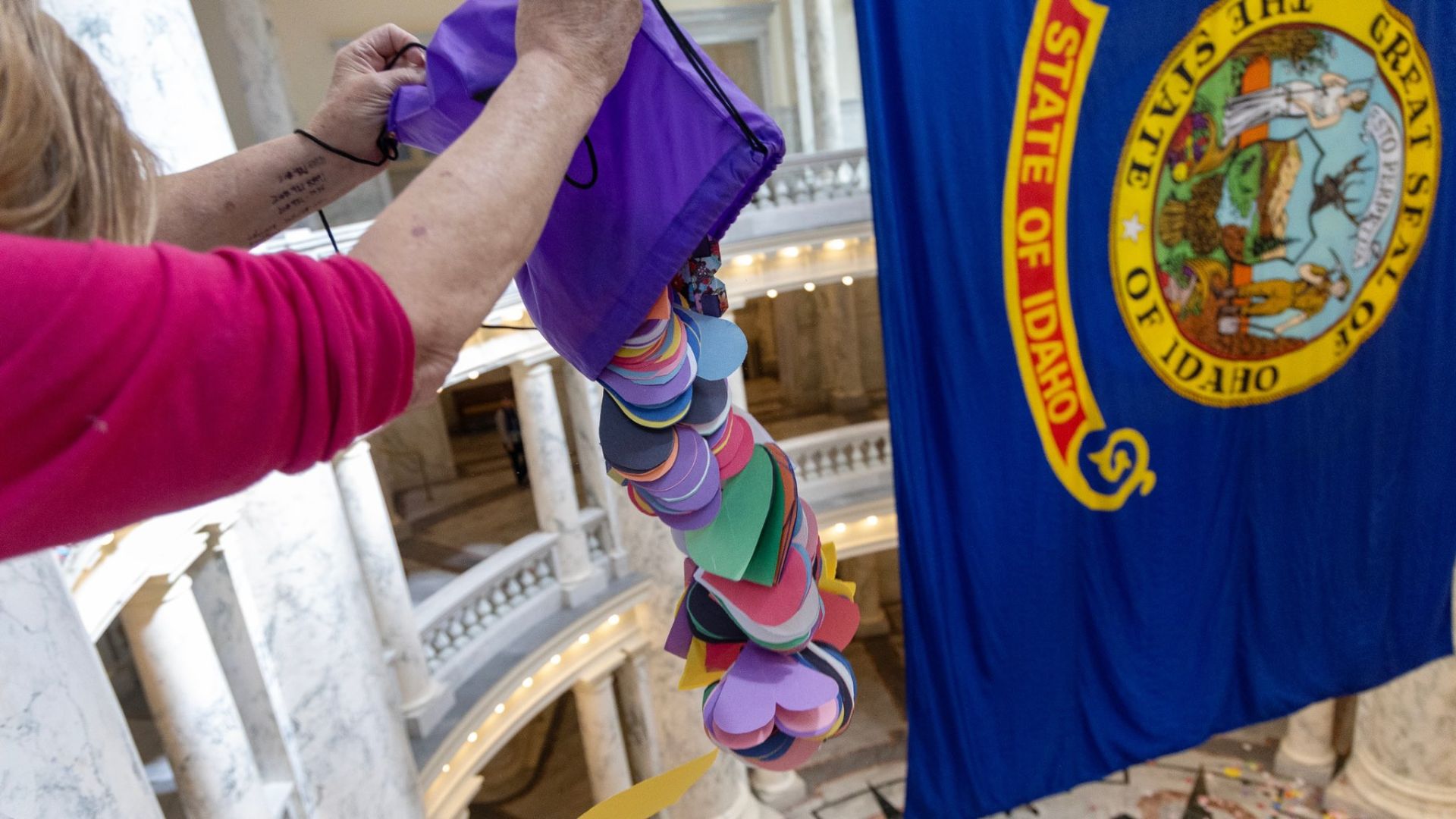
In the months leading up to the 710 bill coming into effect, Idahoans voiced their anger and opposition to the recent streak of anti-LGBTQ legislation.
On April 2, Idahoans dropped 48,000 handmade paper hearts at the Idaho Capitol Building in protest of the Idaho government’s attack on LGBTQ people. The hearts were mailed in by Idahoans throughout the entire state.
This Is Yet Another Anti-LGBTQ Bill In Idaho
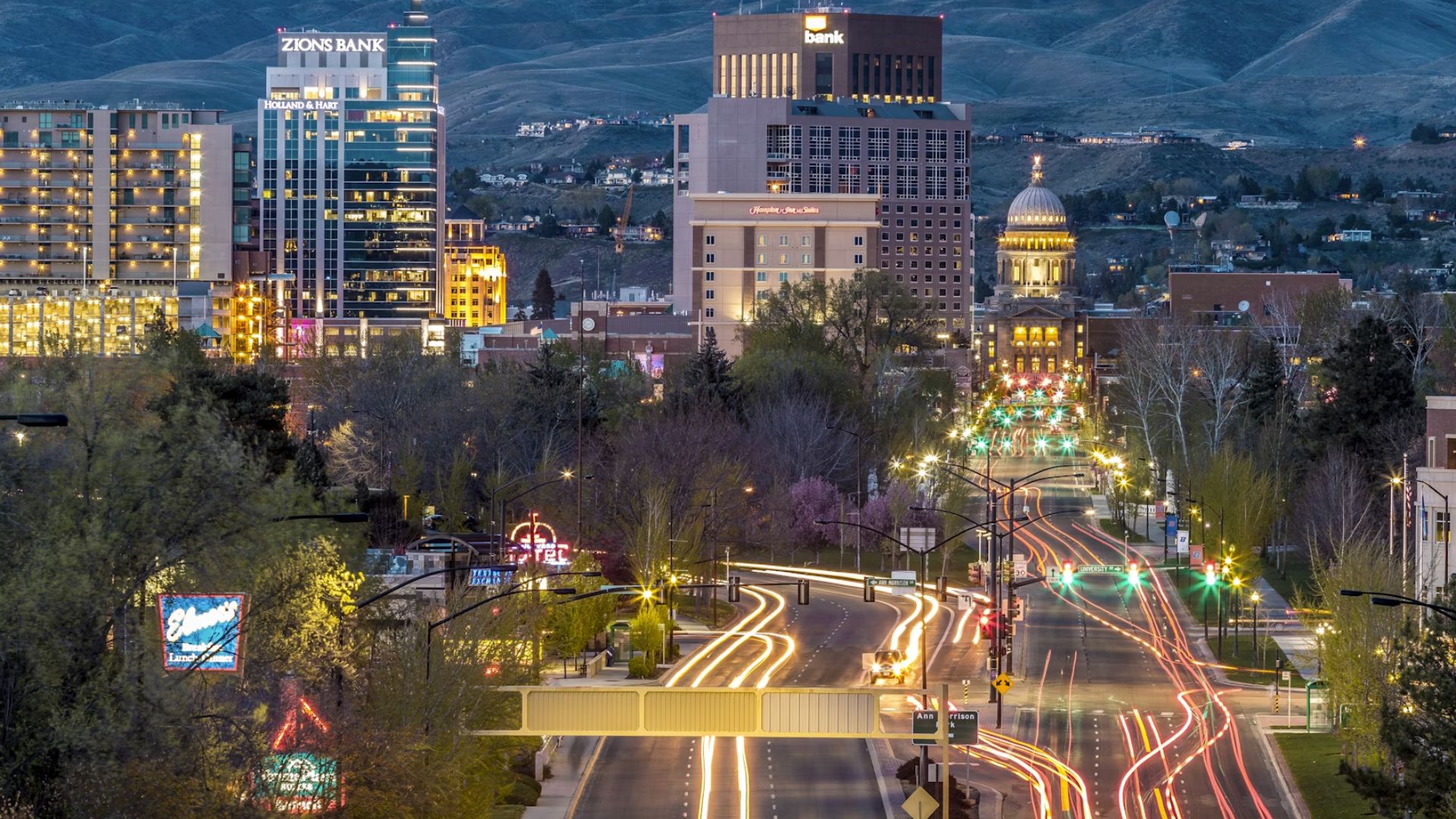
This crackdown on libraries, Bill 710, is another addition to a series of anti-LGBTQ bills that have been signed into law this year.
Four additional bills ban public funds from covering gender-affirming healthcare, legally making “sex” and “gender” synonymous as long with legal definitions for “mother” and “father”, and legal protections for public employees who refuse to use preferred names and pronouns.
Some Librarians Are Not Letting Complainers Off Easy

Fallon Michael/Unsplash
Some libraries in Idaho will not take complaints from just anyone. Stephanie Jewett, from Camas County Public Library, has introduced a more rigorous complaints procedure in relation to the new bill.
“I want to know where they’re from, I want to know specifically what they’re objecting to. I’m not going to [remove books] for someone who tries to remain anonymous, that’s not going to happen,” Jewett told KMVT.
The Future For Public Libraries Looks Bleak
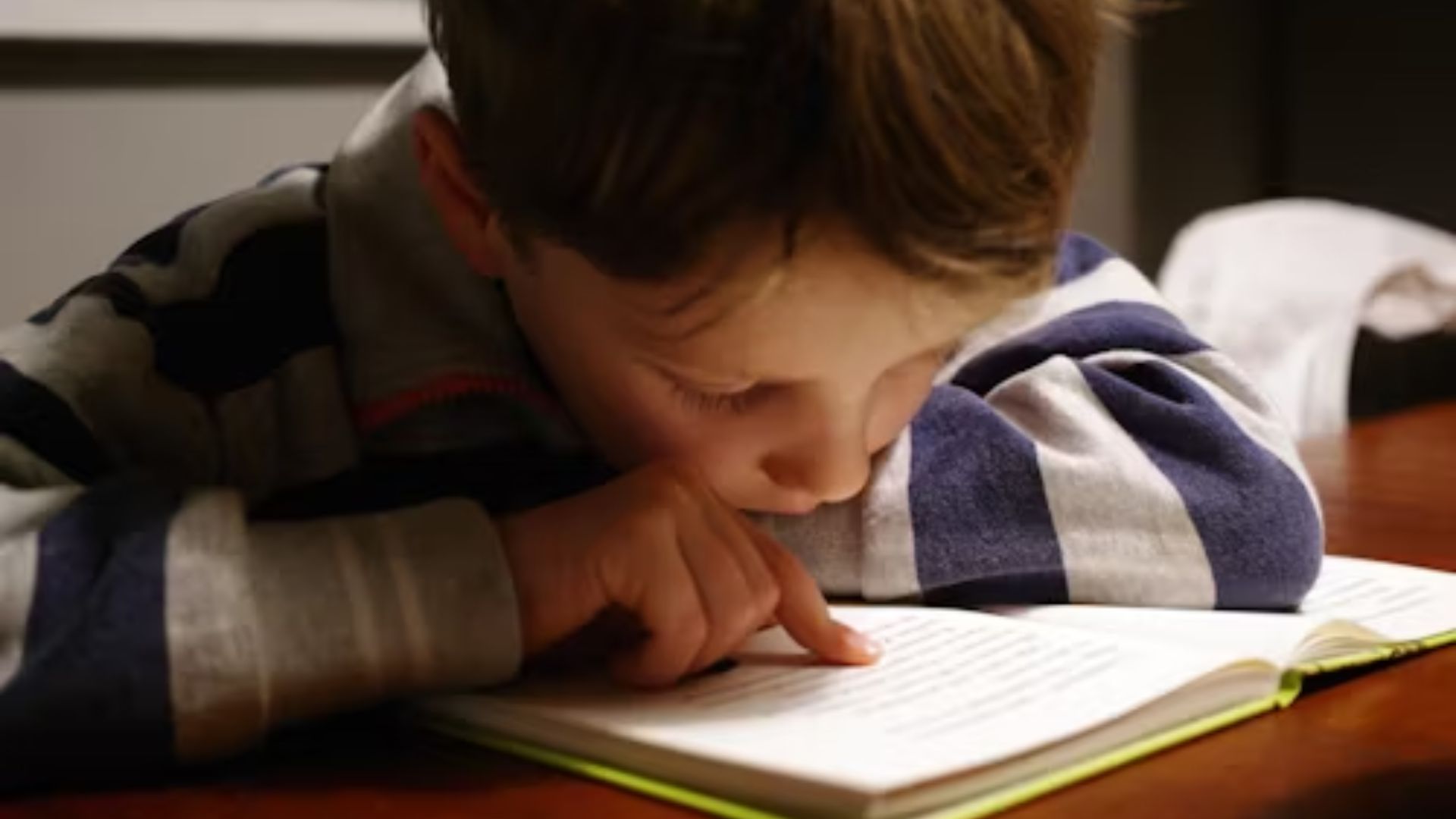
The difficulty of monitoring the new adults-only sections in public libraries puts both staff and readers in a tough position.
Megan Egbert, representative of Donnelly library, told the Daily Mail that the legislation would have a “drastic impact” on homeschooled children. But the importance to “protect staff, library, and taxpayer money” means that libraries are hanging on by a thread to stay open while complying with Idaho’s new law.
